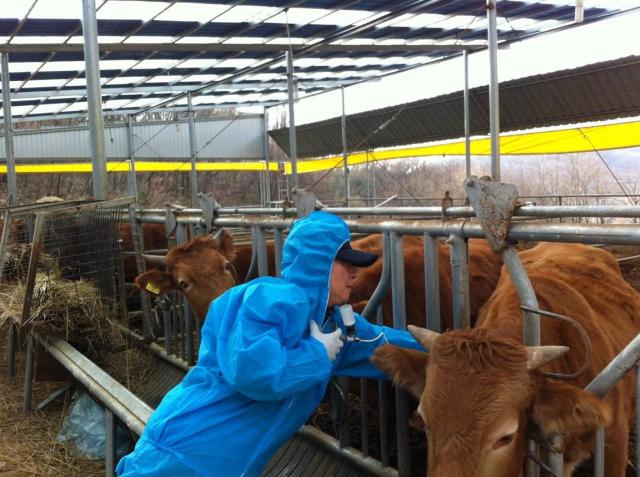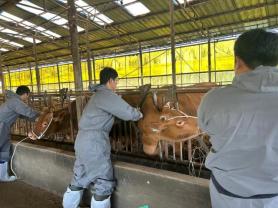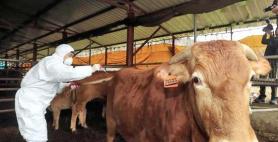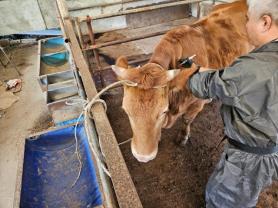
Lumpy skin disease (LSD) is a viral infection that spreads through blood-feeding insects like flies, mosquitoes, and ticks. A cow infected with the virus usually shows symptoms of high fever, skin nodules, enlarged superficial lymph nodes, and lumps measuring up to five centimeters (about two inches) on the skin. The mortality rate is less than 10 percent and the disease does not transmit to humans.
The disease normally takes place in the summer and early autumn when the temperature is high and the air is humid. While many cattle attain long-lasting immunity after recovering from LSD, some farmers vaccinate their cattle to prevent the animals from catching the disease. Since October 20, a total of 81 LSD cases were reported in South Korea.
The emergency headquarters for the control of LSD, operated by the agriculture ministry, said on November 7 that the animal disease control tower vaccinated 3,859,000 cattle out of 4,076,000. The emergency headquarters is currently vaccinating the animals in cattle farms all across the nation. The government organization earlier purchased additional vaccines to stop the early-stage spread of the disease.
The Ministry of Agriculture, Food and Rural Affairs revealed its plan to finish the vaccination in every cattle farm by early November. All transportation of cattle is to be temporarily stopped until vaccinations are completed.
Copyright ⓒ Aju Press All rights reserved.




